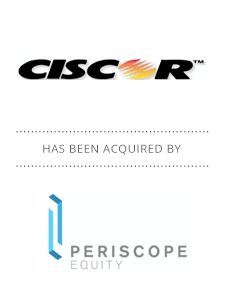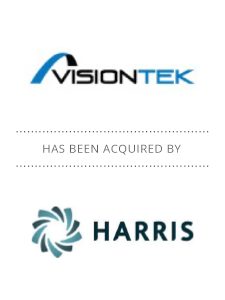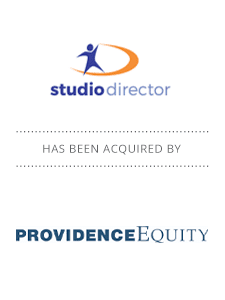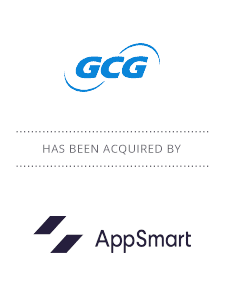IT Services/MSP
TABLE OF CONTENTS:
- CH. 1: Introduction
- CH. 2: Market Overview & Trends
- CH. 3: Key Players in the IT Services/MSP M&A Market
- CH. 4: Recent Deal Flow and Multiples
- CH. 5: Factors that Drive IT Services/MSP Business Owners to Pursue an M&A Transaction
- CH. 6: What Buyers Look for in a IT Services/MSP Target Business
- CH. 7: What to Consider Before Selling Your IT Services/MSP Business
- CH. 8: How to Raise Capital for Your IT Services/MSP Business
- CH: 9: Key Considerations for Growing Your IT Services/MSP Business Through Acquisition
Chapter 1
Introduction to the IT Services/MSP Sector
The IT services and managed services provider (MSP) sector continues to grow at a healthy pace, fueled by a shift to cloud-based and SaaS applications, high demand for cybersecurity services, the digital transformation trend, and the rapid adoption of technologies like generative artificial intelligence (AI), machine learning, the Internet of Things (IoT), and blockchain.
According to Mordor Intelligence, the IT services market is projected to grow from an estimated $1.11 trillion in 2023 to $1.67 trillion by 2028, representing a compound annual growth rate (CAGR) of 8.38%, while the MSP market is forecast to grow from $267 billion in 2023 to $552 billion by 2028, at a CAGR of 12.9%. With the tailwinds fueling the industry’s expansion expected to continue for some time, investors in search of quality target companies are setting their sights on the IT services and MSP sector.
If you own a successful IT services or MSP business, you might have questions about how the market is trending, whether now is a good time to sell or recapitalize your business, and what to consider before taking your company to market. This guide can help.
In this guide to M&A in the IT services/MSP sector, we discuss the trends that are driving the industry’s growth and why investors are attracted to this sector. The guide also reviews recent deal activity in this sector and some of the most active strategic and financial acquirers, explains what buyers look for in an IT services or MSP business, and what to consider before selling your company. The guide concludes by offering guidance for owners who are looking to raise capital for an IT services or MSP business and explains why Forbes is the partner that can help you achieve an optimal outcome.
The IT services market is projected to grow from an estimated $1.11 trillion in 2023 to $1.67 trillion by 2028, representing a compound annual growth rate (CAGR) of 8.38%, while the MSP market is forecast to grow from $267 billion in 2023 to $552 billion by 2028, at a CAGR of 12.9%
Chapter 2
Market Overview & Trends
The IT services and MSP sector encompasses a broad range of businesses providing a wide spectrum of information technology services that keep organizations running efficiently and securely. The IT services space includes providers of consulting, systems integration, hardware deployment, software, value added resellers (VARs), and IT management services, while MSPs tend to provide remote management of an organization’s IT infrastructure or systems. With a focus on helping improve efficiency, reduce downtime, enhance performance, and secure data, these businesses provide services that make a measurable impact on their customers’ operations.
While the offerings in this sector can be quite diverse, the most common include cloud services, network and system monitoring, network security, managed cybersecurity, managed cloud infrastructure services, managed threat detection and response, system and data backup, VoIP (Voice over Internet Protocol) and other communication services, and data analytics. Some companies in this sector also serve as resellers of hardware, software, and other IT products and services.
A number of forces have combined to create significant growth opportunities for IT services and MSP businesses. Demand for managed service is especially strong, a trend that accelerated during the pandemic as many businesses transitioned to cloud-based services in the wake of the remote work shift.
As more businesses move critical applications to the cloud and invest in more sophisticated cybersecurity measures to thwart increasingly creative cybercriminals, IT services and MSP businesses will find their offerings in high demand. The post-COVID shift toward remote and hybrid work has further fueled a need for IT and MSP services, as companies require solutions to support geographically distributed teams. And as McKinsey & Company reported, IT services demand tends to remain consistent, as businesses often view these services as mission-critical to their operations.
As the dominant players in this market vie for top contracts and seek to grow ambitiously, the sector has seen tremendous consolidation. This trend is particularly prevalent among MSPs, which continue to be aggressively acquisitive to achieve greater operational scale. And though a number of tailwinds are fueling growth in this sector, IT services and MSP businesses still face formidable challenges, like the following.
-
- A lack of skilled technology professionals and a persistently tight labor market is proving a real constraint to growth, requiring creative talent recruitment and retention strategies.
- The pace of technology change, the evolution of cybersecurity threats, and the demand for digital-first interactions make it difficult yet critical to keep up with the latest customer needs and the most relevant solutions. In this dynamic environment, IT services and MSP businesses are challenged to continually adapt and innovate to meet evolving requirements and expectations.
- The remote/hybrid work trend requires MSPs to adapt their services to keep up with customers’ changing needs for remote management and IT support for distributed teams.
- The regulatory environment creates additional burdens, requiring IT services and MSP businesses to comply with changing regulations around data protection and data privacy.
- Perceived growth opportunities continue to attract new entrants to this sector, creating a more competitive field that requires businesses to differentiate their services and diversify their offerings to attract new customers.
- A volatile macroeconomic environment and the impact of global geopolitical events can make it more difficult for these businesses to access affordable capital and plan with confidence.
Despite these very real challenges, investors find the IT services and MSP sector very attractive, even at times of economic uncertainty. And that makes it a good time to consider selling an IT services or MSP business.
Investors are particularly drawn to this sector’s focus on building recurring revenue streams that improve revenue predictability and reduce financial risk, along with the digital and cloud technology trends that are driving strong, sustained demand for IT and MSP services. Both strategic acquirers and financial buyers see opportunities to consolidate a highly fragmented market, overcome talent acquisition constraints, leverage synergies among complementary IT businesses, and set a strong foundation for expansion into new geographic markets and new customer segments.
Ready to Discuss Selling Your IT Services/MSP Business?
Chapter 3
Key Players in the IT Services/MSP M&A Market
Given the many tailwinds propelling the growth of the IT services and MSP sector, it’s not surprising that both strategic acquirers and private equity (PE) groups find this sector appealing. Both buyer types have been highly active in this space, creating opportunities for A+ businesses to find the right buyer to achieve their objectives.
IT services businesses will find that strategic acquirers represent the majority of buyers, with 75% of IT services company acquisitions between 2015 and 2022 involving a strategic investor. In the MSP space, the balance between buyer types is more evenly split, with strategic acquirers responsible for 55% of the deals and PE groups completing the remaining 45% of transactions.
Among the most active strategic acquirers of IT services and MSP businesses is Accenture, the global IT consulting firm, has acquired more than 140 IT Services companies, including cloud services, digital transformation, cybersecurity, data and analytics, and managed services providers since 2019.
Other large strategic acquirers of IT services and MSP businesses include the following:
-
- IBM, which acquired Red Hat in a move designed to bolster its cloud services and open source software solutions
- Capgemini, which acquired Altran Technologies to support the digital transformation of industrial and tech companies
- The 20 MSP, which made seven acquisitions in 2023 to expand its MSP services, adding companies like WolfGuard IT, Bolder Designs, Byte-Werx, and JS Computek
- Norton LifeLock, which merged with cybersecurity company Avast in a $6 billion deal
PE groups that specialize in the technology arena are continually in search of top-tier businesses to add to their portfolios. Some of the most active PE groups in the IT services and MSP space include the following:
-
- Blackstone, one of the world’s largest investment firms, which acquired a controlling stake in Mphasis, a leading provider of IT services, focused on cloud and digital solutions
- Thoma Bravo, which acquired security software vendor Proofpoint
- Investcorp Technology Partners, which acquired managed security services provider HWG
- Carlyle Group, which made a $3 billion investment in Hexaware, an IT and business process outsourcing provider
Ready to Talk to an Expert?
Chapter 4
Recent Deal Flow and Multiples
Though economic uncertainty, high interest rates, and market volatility can all weigh on M&A activity, the IT Services and MSP M&A market remains extremely active. If you’re considering selling your company in this environment, you will likely have questions about what kind of deal outcome you can expect.
The deal outcome is primarily a function of your company’s valuation (known as your enterprise value) and the deal multiple. Though every business and every deal is unique, the following provides a window into our observations regarding the most recent multiple trends for IT services and MSP businesses.
As a general guideline for IT Services companies and MSPs, for companies with less than $2 million of EBITDA, we generally see multiples in the range of 5 to 6X, while for companies with $2 to $5 million of EBITDA, we typically see multiples of 6 to 8X. For companies above $5 million, we see a range of 7 to 10X from active buyers. Specific sub-sectors within these broad sectors may attract higher valuation ranges. For example, cybersecurity companies may see much higher multiples compared to the general IT Services sector.
For Value Added Resellers (VARs), we usually see lower multiples as these businesses tend to have lower margins and revenue can often appear “lumpy.” This perspective often leads buyers to offer a multiple for VARs as low as 4X, although usually more in the 5-6X range, with an A+ VAR commanding 7X or more.
Custom programming business that exhibit strong financial characteristics can expect to see multiples in the range of 7 to 10X, with the higher end of the range usually reserved for companies of larger size with strong forecasts, historical consistency and a robust backlog of contracted work.
The previous examples are provided as a general guideline. However, average multiples and multiple ranges can be misleading because every company is different. For buyers, there are many factors that are evaluated to determine an assessment of value.
For IT Services and MSP companies, here’s a list of factors that will likely be considered:
- EBITDA (earnings before interest, taxes, depreciation, and amortization)
- Company size
- Historical revenue and profit margins and year over year growth
- Contracted, recurring revenue
- Customer and revenue retention
- Level of customer concentration
- Strong market demand for the company’s services
- Does the business operate using a preferred status (e.g. woman owned business)?
- Quality of leadership team
- Range of services
- Size of the business
- Quality of the financial statements
- Operational metrics
- Free cash flow
- Team expertise and certifications
In summary, every deal is unique, with no hard-and-fast rules for the deal multiple you will achieve and deal multiples for IT Services and MSPs vary based on many factors.
Chapter 5
Factors that Drive IT Services/MSP Business Owners to Pursue an M&A Transaction
Every owner will likely have different reasons for thinking about selling the business, which usually involve a mix of personal and professional considerations. However, the following factors tend to weigh into the decision for a founder to sell an IT services or MSP business.
-
- Favorable market conditions. If you’ve experienced a surge in demand for your company’s services, and your revenue growth is on a strong trajectory, you might decide it’s a good time to sell your business because you’re more likely to achieve a higher multiple and better deal price.
- Retirement goals. If you’re nearing your intended retirement age, and selling the company is an integral part of your retirement strategy, then the time might be right to exit the business by selling to a strategic or financial buyer.
- Personal health. If you have concerns about your health or are experiencing health problems, you’re more likely to consider moving on from the business to focus more time and energy on yourself.
- Other business pursuits. While many founders will only start and run one business in their lifetime, others are serial entrepreneurs who relish the idea of founding new ventures. Selling your current IT services or MSP business could provide the financial means to invest in or establish a new company.
- Burnout. Owning and leading an IT services or MSP business is typically demanding, especially if you’re active in both the strategic leadership and the daily operations. For some founders, burnout becomes the trigger to considering a sale.
- Liquidity goals. For many IT business owners, equity in the company represents a large portion of their total financial portfolio, which creates a degree of risk. You might find yourself thinking about selling the business outright or taking on a majority investor to gain liquidity and diversify your net worth.
- Disputes. If you’re not the sole owner of the business, and you find yourself embroiled in major disagreements with your partners, those disputes could get you thinking about selling.
- Economic conditions. The volatility of the current economic climate can weigh on any business owner’s mind, as concerns about high borrowing costs, tighter credit, persistent inflation, and the impact of geopolitical events on the supply chain all make it more challenging to run a business today. Some might look at a sale as an opportunity to avoid such worries, though these factors can impact the M&A landscape and potentially reduce a buyer’s appetite.
Chapter 6
What Buyers Look for in an IT Services/MSP Target Business
No matter the state of the economy or how attractive a given sector is overall, investors will always seek top-tier businesses that provide a strong opportunity to generate high returns. With that goal in mind, buyers tend to consider the following characteristics when evaluating an IT services or MSP business.
-
- Financial performance. Buyers seek out IT services and MSP businesses that can demonstrate consistent profitability, increasing revenue, and steady cash flow.
- Market position. The better the business’s market leadership position, the more attention it will garner from strategic and financial buyers.
- Growth opportunities. Buyers are drawn to IT services and MSP businesses with the potential to grow, whether by expanding into new geographic regions or tapping new customer segments. Companies with a proven ability to scale efficiently also prove more attractive to investors.
- Technology strength. Technology is at the core of any IT services or MSP businesses, so investors will seek those that bring technological advantages. That could include highly attractive intellectual property, innovative software, or a strong IT infrastructure.
- Management team. If investors expect to keep the management team on for a period of time—which is nearly always the case for a PE group, and often for a strategic acquirer—then the experience and expertise of the executive team will be a key consideration.
- Synergy opportunities. Strategic buyers will seek an IT services or MSP business that allow them to leverage synergies. For instance, they tend to value companies whose products and services complement their own and can help them grow, expand, diversify, and drive greater value.
- High ROI. For financial buyers, the target company must provide significant growth opportunity within a relatively short window of time, allowing the buyer to sell the business at a much higher value. That, in turn, ensures the buyer of a clear path to exiting the investment on the desired timeline.
Chapter 7
What to Consider Before Selling Your IT Services/MSP Business
Selling your company is a big step that will have significant implications, both personally and professionally. To ensure the best possible outcome—one that aligns with your goals—you’ll want to ensure it’s truly the right time to sell and that you’ve done everything you can to position your company for a successful transaction.
Questions like the following can help you determine if you’re ready for the due diligence process and whether your company would make an attractive target for prospective buyers.
Are your financials in order?
Buyers will scrutinize your financials and expect to review accurate, current, thoroughly documented financial statements. Make sure your income statement and balance sheet are investor-ready. For businesses with recurring revenue, that extends to ensuring you’re recognizing revenue accurately per GAAP.
How strong is your revenue?
Investors place a high priority on companies that can demonstrate recurring revenue and sustained revenue growth. They also prioritize businesses that have taken measures to reduce revenue risk, such as diversifying their customer base to avoid tying up too much revenue in one or two large customers.
Are your contracts solid?
Buyers look for businesses that have favorable contracts with customers, with features like multi-year terms and long cancellation notification timelines. Be sure your contracts are written such that they will transfer to a new owner.
Are your operations running smoothly?
Buyers appreciate businesses that use automation and other measures to improve efficiency, enhance service delivery, or reduce operational costs.
Are there any legal obstacles?
The due diligence process will involve scrutiny of every aspect of your business, including any outstanding legal issues. Make sure your intellectual property and other assets are protected properly and consider whether any pending or previous litigation could create an obstacle to getting a deal over the finish line.
Do you have key-man risks?
Buyers that plan to keep the current management team in place will expect you to have employment contracts that incentivize leaders to stay on or prevent them from leaving for a determined period. If your technology know-how is dependent on a few key staff members, buyers will also expect you to lock-up those employees to avoid losing critical skills and knowledge post-transaction.
Is your technology up to par?
With technology advancing more rapidly than ever, it’s essential to ensure your IT or MSP offering is truly state-of-the-art. Buyers will be most interested in IT services and MSP businesses with a technological advantage.
Ready to Discuss Selling Your IT Services/MSP Business?
Chapter 8
How to Raise Capital for Your IT Services/MSP Business
As an alternative to selling the company, you might decide that raising capital is an effective way to achieve your current goals. Additional capital can help fund growth initiatives or enable you to tap some of the liquidity in the business to diversify your net worth or invest in other pursuits.
There are two primary forms of capital: debt and equity. Deciding which is best for you starts with understanding how each option works, along with the associated pros and cons.
Debt capital typically involves bank loans or corporate bonds, but sometimes includes mezzanine financing. IT business owners tend to use debt capital for short-term or limited capital needs, such as increasing working capital or investing in new technologies or infrastructure. For financially healthy companies, debt capital can be relatively fast and straightforward to obtain. However, at times of high interest rates it can prove a costly approach. To qualify for debt capital, you’ll need to demonstrate that your current and projected cash flows can service the debt and you can satisfy the lender’s collateral and credit rating requirements.
Equity capital is obtained by providing an investor with minority ownership of the business in exchange for capital. For an IT services or MSP business, equity capital can be a viable way to fund larger or more long-term or ongoing needs, such as acquiring a company or funding a major expansion. However, by taking on a minority investor, you will dilute some of your ownership and turn over some control of your business, especially when it comes to significant decisions.
Which form of capital is right for your IT services or MSP business will depend on a number of factors. If your company is in the early stages, you might not have sufficient revenue to service debt and might need to opt for an equity investment. A more mature company with consistent cash flow likely has more flexibility to use debt capital as a means to retain greater control and avoid ownership dilution. A company that is growing consistently and can demonstrate strong recurring revenue also might find it easier to attract equity investors than a business whose revenues are flat.
With various options to choose from and many factors to consider, raising capital can be a complex undertaking. Owners of IT services or MSP businesses would do well to hire an investment banker to serve as a trusted guide to navigate the complexities and choose the optimal capital structure. Your investment banking partner will ask about your objectives and how you plan to use the funds, then recommend the best capital structure to achieve your goals, market your business to the right capital sources, and negotiate and finalize the best terms.
The Forbes Guide to Middle Market Capital Formation is an informative and comprehensive resource for IT services and MSP business owners that are looking to raise capital.
Chapter 9
Key Considerations for Growing Your IT Services/MSP Business Through Acquisition
Depending on the maturity stage of your business and your personal goals, you might decide that you’re not ready to sell just yet. But if you’re still in high-growth mode, and eager to achieve greater growth than you could organically, acquiring another company might be an effective strategy. The right target company could open important doors—enabling you to broaden your service offering, attract a new customer segment, expand into other geographic regions, or gain access to coveted talent at a time when it’s increasingly difficult to attract and retain qualified professionals.
If you decide to pursue an acquisition, you should evaluate a target company just as carefully as a strategic or financial buyer would evaluate your business. At a minimum, consider factors like the following when assessing a potential acquisition target:
-
- Financials. Be prepared to review the company’s financial health and performance rigorously, paying close attention to their revenue consistency, diversification, and trajectory, as well as their profitability and current debt load.
- Strategic fit. The best-fit target is likely to be a company that complements yours in a meaningful way, by offering access to services you’re not currently equipped to provide or a presence in markets you’d like to penetrate.
- Customer base. You’ll want to focus on companies that have a diverse customer base to avoid the risk of too much revenue concentrated in one or two very large contracts. It can also prove fruitful to acquire a company whose customer base complements, but does not duplicate, your own.
- Technology. Look for a target whose technology is compatible with yours but adds value in some way. For example, a compatible tech stack might prove beneficial as it will reduce integration efforts, while a business with a stronger IT infrastructure could be a sound addition.
- Cultural fit. While technological fit is vital for an IT or MPS business, cultural fit should always be a consideration when you’re evaluating an acquisition target. The more compatible your organizations, the more likely you’ll achieve a smooth and successful integration.
- Talent base. At a time when it’s incredibly difficult to attract and retain top technology talent, a business with a strong, established team might provide a solution to staffing challenges that can constrain growth.
How Forbes Partners Can Help
Despite the volatility of the past several years, it’s still a good time for exceptional companies in the IT services and MSP sector to consider taking the business to market. Buyers remain interested in this sector and seek top-tier companies to deploy their capital and earn a strong return on their investment.
The Forbes Partners investment banking team is adept at navigating dynamic M&A markets, well-versed in the trends driving adoption of IT services and managed services, and deeply knowledgeable about this sector and its unique opportunities and challenges. We maintain strong relationships with many of the industry’s most active buyers, so we know what they’re looking for in a target company and we have ready access to them as potential buyers for your IT services or MSP business.
The Forbes team has leveraged its experience in the IT services and MSP sector to guide the successful completion of deals like these:
- Served as exclusive advisor to PayReel, LLC, a leading tech-enabled provider of human resource compliance, worker classification, and payrolling solutions, in its partnership with Seaside Equity Partners
- Served as exclusive advisor to Enquiron, Boston-based provider of risk management and consultative business solutions has been acquired by Zywave, a leader in the insurance tech industry and portfolio company of Clearlake Capital
- Served as the exclusive advisor to Integro on its sale to Innovative Discovery
- Served as the exclusive advisor to Lighting Analysts, Inc., the author of industry standard tools used in architectural lighting applications, on its sale to TA Associates
Complementing our IT services and MSP sector experience, the Forbes team has extensive M&A and Capital Formation experience in the broader technology sector, working with businesses whose operating models rely on recurring revenue streams. We also understand what it takes to run and grow an IT services or MSP business, because we’ve done it ourselves. Dan Roth, a member of our IT advisory team, has started, built, and sold multiple IT businesses, including a value-added reseller. He’s also served in leadership positions for premier IT companies, including an international computer and networking manufacturer and as President & COO of a $140 million, 900 employee IT outsourcing / Data Center company. His deep operational experience in software, hardware, networking, security, data analytics, data centers, and managed services affords him keen insights into how these businesses operate and how buyers approach acquisitions in this sector.
Regardless of your company type or sector, our investment bankers are highly skilled at crafting a compelling story about your business and creating a unique and defendable position that can help you achieve an optimal outcome. Owners that aren’t ready to sell also find our advisory services invaluable in positioning them for an optimal deal outcome when the time is right.
Talk with Forbes.
Exceptional businesses in the IT services and MSP sector need an exceptional investment bank. Forbes Partners has the necessary expertise and will focus its efforts toward achieving optimal outcomes for you.
Forbes Partners is an award-winning middle market investment banking firm focused on driving maximum value to clients. We help our clients restructure debt or recapitalize their business to meet evolving needs. Many owners desire liquidity while still maintaining control of their businesses. Forbes Partners can help them achieve their goal. Our experienced bankers think strategically about value creation — we are market makers, and our clients expect nothing less.



















